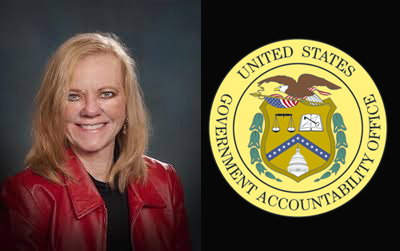Millennials are getting less and less mail
In today's Federal Newscast, the Postal Service says millenials received significantly less mail in 2017 than the year before. Meanwhile Mitch McConnell said he has...
To listen to the Federal Newscast on your phone or mobile device, subscribe on PodcastOne or Apple Podcasts. The best listening experience on desktop can be found using Chrome, Firefox or Safari.
- Millennials do not receive as much mail as they used to, according to a new white paper from the Postal Service’s Office of the Inspector General. Adults between the ages of 18 to 34 only received an average of 10 pieces a mail per week in fiscal 2017, down from 17 pieces in 2016. The OIG tracks millennial customers as part of a larger decline in mail volume. (U.S. Postal Service Office of Inspector General)
- Senate Majority Leader Mitch McConnell (R-Ky.) said he has no plans to shut down the government over President Donald Trump’s push for border wall funds. Instead, McConnell said the Senate will finish up a package of budget bills this week as Congress makes progress towards funding the government for the new fiscal year that starts on Oct. 1. McConnell said the Senate is taking steps toward “funding the government in a timely and orderly manner.” (Federal News Radio)
- Sen. Chuck Grassley (R-Iowa) called on Trump to honor agency whistleblowers at the White House. Speaking at a National Whistleblower Day event, Grassley credited whistleblowers with helping the government recover more than $56 billion in fraudulent payments since 1986. He said his request to recognize them has been turned down by every president since Ronald Reagan. (Federal News Radio)
- Congress takes more steps to centralize the management of the military’s health care system. The Senate’s version of this year’s defense authorization bill would have completely eliminated the Army, Navy and Air Force’s medical commands and transferred their people and responsibilities to the Defense Health Agency. The final House-Senate agreement does not go quite that far, but it does move the military services’ R&D and public health functions to DHA. The bill also tells DoD to explore the possibility of finally setting up a joint health command to serve the entire military. (Federal News Radio)
- Robert Wilkie was sworn in as the Veterans Affairs Department’s new permanent secretary, his third time taking the federal oath of office. Wilkie will take over an agency with several high-level leadership vacancies and a series of major projects. VA is the beginning stages of modernizing its electronic health record, implementing a new veterans community health care program and a faster appeals process. (Federal News Radio)
- The Federal Emergency Management Agency is making several immediate changes after an internal investigation uncovered a series of sexual harassment allegations against FEMA’s chief component human capital officer. FEMA Administrator Brock Long said he is creating a new office to review FEMA’s handling of sexual harassment and employee misconduct. All employees will be required to take in-person training on sexual harassment. And a team of outside contractors will help FEMA review open sexual harassment and employee misconduct cases, and cases that employees felt were inadequately handled. (Federal News Radio)
- The General Services Administration is lending its acquisition expertise to help innovative small businesses. GSA launched a pilot in its assisted acquisition services office to play matchmaker between small businesses with cutting edge technologies and agency customers. GSA worked with the Small Business Administration to open up its acquisition services to bring together the firms and the 13 agencies who participate in the small business innovation research or SBIR program. Under phase 3 of the SBIR program, small firms must commercialize their technology inventions and GSA saw an opportunity to expose those innovations to more federal customers. (General Services Administration)
- Add one more voice to the growing number of experts weighing in on the development of the e-commerce portal. The Government Accountability Office reviewed GSA’s initial implementation plan for the portal which aims to let agencies buy commercial products and services easier. Auditors detailed four questions GSA and OMB should consider as they move closer to portal development, including how the portal will impact existing acquisition programs as well as how the portal will manage all the data. (Government Accountability Office)
- The Transportation Security Administration rolls out a test program for new scanners. TSA said it will try one of the new computer tomagraphy scanners at each of 15 airports, including Dulles International. The carry-on baggage-screening machines are said to produce 3D images of baggage contents that screeners can rotate and zoom in on, on screen. That will let screeners better see potential explosives. Administrator David Pekoske said the scanners should shorten waiting times and reduce physical bag checks, and even leave laptops packed. (Transportation Security Administration)
Copyright © 2025 Federal News Network. All rights reserved. This website is not intended for users located within the European Economic Area.
Eric White
Eric White is news anchor and Federal Drive producer at Federal News Network.
Follow @FEDERALNEWSCAST
Related Stories

What does USPS do, anyway? WH postal task force aims to redefine its mission
Related Topics
2019 NDAA
airport scanners
All News
border wall
Contracting
Defense
Defense News
Donald Trump
Federal Drive
Federal Newscast
FEMA
General Services Administration
Government Accountability Office
Government Shutdown
Management
millenials
Mitch McConnell
Office of Management and Budget
People
Postal Service
Robert Wilkie
Transportation Security Administration
Veterans Affairs
Workforce




